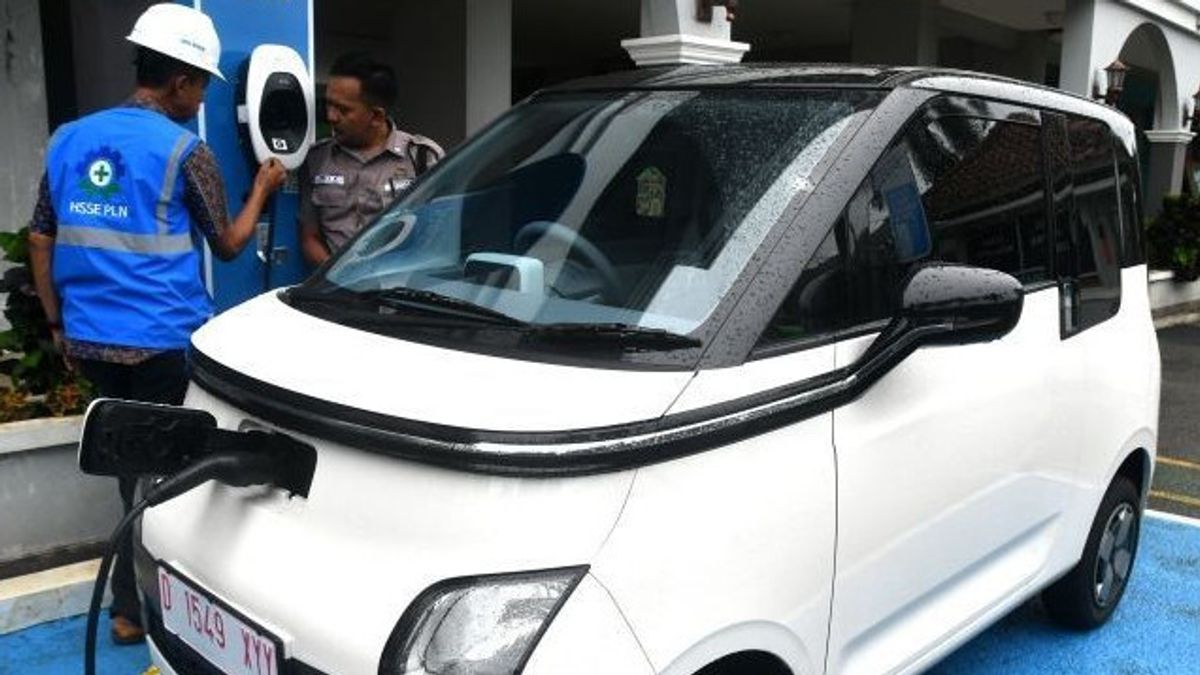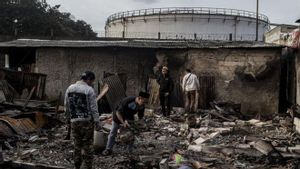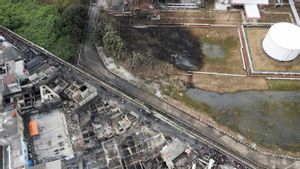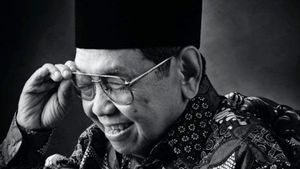JAKARTA – According to a Bandung Institute of Technology (ITB) transportation expert, Sony Sulaksono Wibowo, providing subsidies for the purchase of electric vehicles is an inappropriate move. Instead of driving the use of public transportation, the government actually encourages people to use private vehicles.
Contrary to the spirit of reviving public transportation. Better yet, a subsidy value of IDR 1.75 trillion is used for the construction of urban mass transportation infrastructure.
"After all, the goal remains the same. If people are willing to switch, the burden of needing for fuel (fuel oil) will surely decrease, pollution will also decrease, and even more effectively the result of congestion can also be resolved," Sony said to VOI on March 9, 2023.
Moreover, if the concern is over the use of fuel which is quite high and the value of fuel subsidies is getting heavier why don't we resume the gas fuel program? Moreover, Indonesia is the world's largest gas producer.
"Why suddenly into electricity?" he said.
The government should not have to interfere too much. Let electric vehicles follow market mechanisms, without subsidies and without any incentives.

"All that remains is to push the infrastructure, for example by increasing SPKL (Electric Vehicle Charging Stations). You don't have to use the APBN, please the regions that are in control. Don't even go into selling. If there is already a lot of SPKL, people also want to switch, especially if the price of electric vehicles is cheaper," said Sony.
"This is even given a privilege, electric cars are toll-free, odd-even free, free parking, subsidized is also not true. It's the same as telling people to use private vehicles," he added.
Sony admits that European Union countries have indeed provided many incentives for electric vehicles, but the infrastructure of these countries is ready, and the general transportation system has also been running effectively.
"If Indonesia is reversed. Promote the ownership of electric vehicles first. How about public transportation? So if you want to imitate, look at the history, don't just end it. It's not time like this. The problem that must be addressed is congestion first, "said Sony.
See Tomtom International BV data regarding the Jakarta Congestion Index in 2022, the average travel time per 10 kilometers in DKI is 22 minutes 40 seconds.
Big cities like Bandung, Surabaya, Bogor, and Makassar also have similar problems. This has negative impacts, including air pollution, waste of vehicle fuel, and economic losses due to wasted time.

"Is the policy of encouraging the use of electric cars to overcome traffic jams, in fact, it will get worse," he said.
According to Djoko Setijowarno, the government's plan to provide subsidies for electric vehicles, a civil engineering lecturer at Soegijapranata Catholic University, has no foothold in the transportation ecosystem in Indonesia.
In addition to improving public transportation, it is wiser to divert subsidies to mobility in frontier, remote and underdeveloped areas, as well as island areas.
"After all, MSMEs do not need electric motorbikes. Every MSME already has a motorbike. Current conditions they need more business capital. Subsidies are given by the state to poor citizens. People who can buy motorbikes or cars mean people can afford it, why give subsidies," said Djoko to VOI on March 9, 2023.
Djoko asked that this policy be reviewed and adjusted to the needs and future vision of Indonesian transportation, "This program is prone to abuse. KPK must supervise.”
Triggered Fuel Scarcity
If you really want to promote the use of electric vehicles, said Djoko, the government actually still has many wiser ways. Look at Agats City, Asmat Regency, South Papua Province.
Since 2007, residents of Agats City have been using electric vehicles for their daily mobility due to the lack of access to fuel oil. Access to and from Asmat Regency can only be reached by air and sea. Air access is through Ewer Airport which is located on Ewer Island, while sea access is through Asmat Seaport.
In 2018, said Djoko, the presence of electric vehicles was increasing. Data from the Asmat Regency Transportation Service stated that there had been 3,154 electric vehicles. Most of the electric motorcycles are 3,067 units. Currently, reportedly has reached more than 4,000 units.
Rarely do people use gasoline-powered vehicles. Motorcycles with fuel are usually only used by police officers, while cars are only ambulances or government cars.
"Agats City has set an example of being able to make electric vehicles the main means of transportation. They can not depend on BBM in their daily activities. Small towns can actually implement this. So, we need a trigger to get people to choose electric vehicles, not suddenly through subsidies," he said.

However, for big cities, public transportation should still receive priority. The IDR 1.7 trillion value, according to Djoko, could be used to improve urban transportation in 20 cities.
"In Indonesia, there are many smart people, much smarter than some countries in Southeast Asia, but Indonesia has never been able to make smart policies. Individually, the Indonesian people are superior but as a nation Indonesia is barren," said Djoko.
As already reported by VOI, Minister of Industry Agus Gumiwang Kartasasmita has announced subsidies for the purchase of electric cars and motorbikes. There are 35,900 electric cars with a subsidized value of up to IDR 80 million per unit. As well as 200,000 motorbikes with a subsidy value of IDR 7 million per unit.
"That will be valid until December 2023. So that the selling price is more affordable to the public," Agus said in Jakarta on March 6.
SEE ALSO:
Terms:
- Micro, small, and medium enterprises (MSMEs)
- Recipients of People's Business Credit (KUR)
- Recipients of Productive Banpres for Micro Enterprises or BPUM
- Electric customers with 450 to 900 VA power
In addition, the government also provides subsidies for 50,000 fuel-to-electric conversion vehicles.
Electric vehicles are indeed a solution to reduce fuel consumption. Currently, the government is still importing fuel because domestic fuel consumption reaches up to 1 million barrels per day, while national crude oil production figures refer to SKK Migas media data for 2022, only around 616.6 thousand barrels per day.
The English, Chinese, Japanese, Arabic, and French versions are automatically generated by the AI. So there may still be inaccuracies in translating, please always see Indonesian as our main language. (system supported by DigitalSiber.id)
















